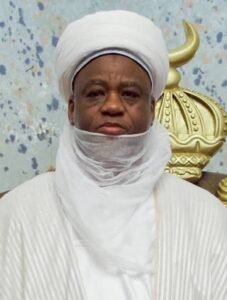Nigerian government assures fair compensation to content creators

The federal government says it will continue to strengthen intellectual property rights to ensure that Nigerian content creators are adequately compensated for their works.
The minister of information and national orientation, Mohammed Idris, gave the assurance at the first National Conference of Society of Nigerian Broadcasters (SNB) on Wednesday in Abuja.
The Conference with the theme, “Broadcasting and the Political Economy of Content Production in Digital Age: The Nigerian Perspective’’ was organised by SNB in collaboration with Broadcasting Organisations of Nigeria (BON).
“As a government, we will continue to strengthen intellectual property rights to ensure those content creators are adequately compensated for their works.
“Over time, our regulatory institution; National Broadcasting Commission and Advertising Regulatory Council of Nigeria have been retooled to promote and enforce the consumption of local content in Nigerian.
“This is to empower our citizens and create more job opportunities for our teaming youths,’’ he said.
The minister noted that the dynamics of broadcasting are rapidly changing through technology which has not only expanded the reach of broadcasters, but also diversify how contents are produced and consumed.
“The proliferation of digital platforms including social media streaming services and podcasts has democratised content creation by allowing more voices to be heard.
“The Nigerian content industry is the most vibrant in Africa with Nollywood being ranked as the second movie industry in the world; our musicians have taken the world by storm,” he said.
Mr Idris disclosed that the federal government was reviewing the missed opportunities on the digital switch overo create more outlets for Nigerian youths to adequately express their creative ability,
The minister said the administration of President Bola Tinubu was deeply committed to the advancement and consolidation of democracy through a series of comprehensive reforms.
“Those comprehensive reforms are aimed at creating job opportunities, fighting poverty and insecurity, providing critical infrastructure and social services as well as inclusive governance’’.
Mr Idris was represented at the event by the executive secretary of Nigeria Press Council, Dr Dili Ezughah.
The chairman of BON, Salihu Dembos, said the theme of the conference was timely due to technological advancement and changing nature of audience behaviours.
“As broadcasters, we are tasked with navigating these challenges, and it is on this note that we invite a speaker of repute to come and talk to us on this important topic.
“It is hoped that at the end of the day, participants will have something to take home that will of course better the broadcast industry and the society in general,” he said.
Mr Dembos, who is also the director-general of Nigerian Television Authority urged participants to participate fully in the delegate conference.
On his part, the national coordinator of SNB, Dr Yemisi Bamgbose, said the significance of the conference could not be overemphasised, in breaking the jinx of over 60 years.
`If you observe, the media has no professional body like those in law, advertising, accounts, Pharmacy, Medicine professions.
“NSB is here to bring all of us together, including those that have retired. It has been on board for more than 60 years. Today it is a reality.
“Participants were drawn from both public and private organisations across the country; even those in programming and engineering in media houses are included.
“We will have an election for national officers and those to handle the zones. This will ensure that everybody is carried along,’’ Mr Bamgbose said.
The keynote speaker, John Momoh, chief executive officer of Channels Media Group, said maintaining editorial integrity in digital broadcasting is a necessity.
“Broadcasting has always been a powerful tool in shaping public opinion, influencing culture and driving societal change.
Represented by Kingsley Uranta, the general manager of Channels Academy, Mr Momoh said broadcasting has been a gatekeeper of information, playing a crucial role in a politics, economy by determining content reaches.
(NAN)






